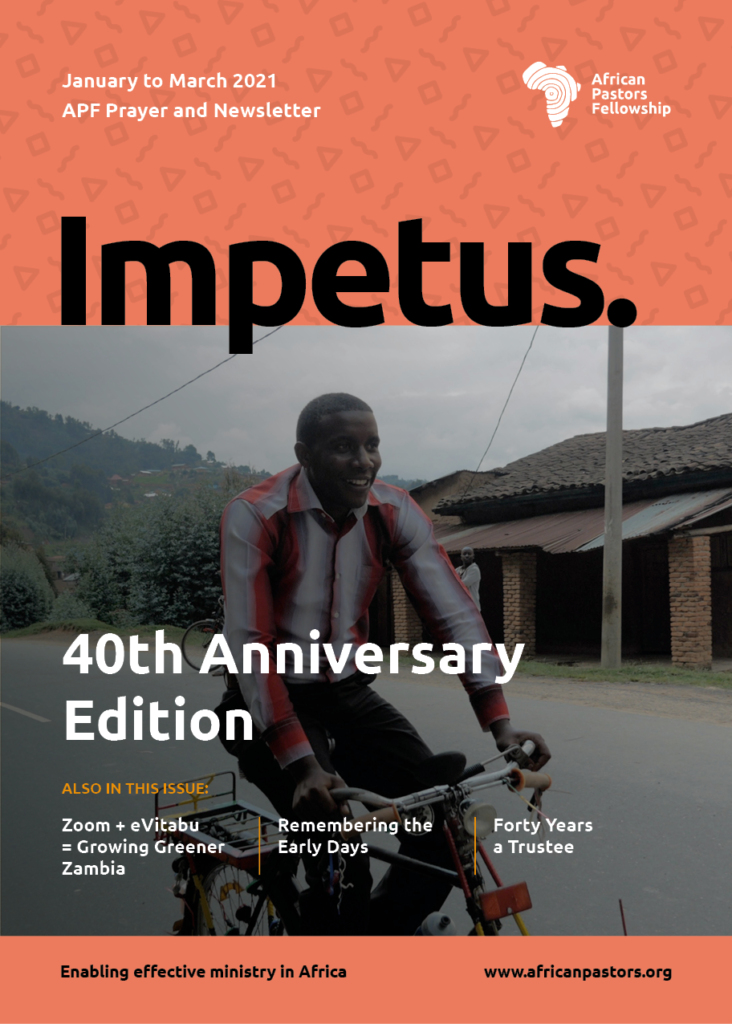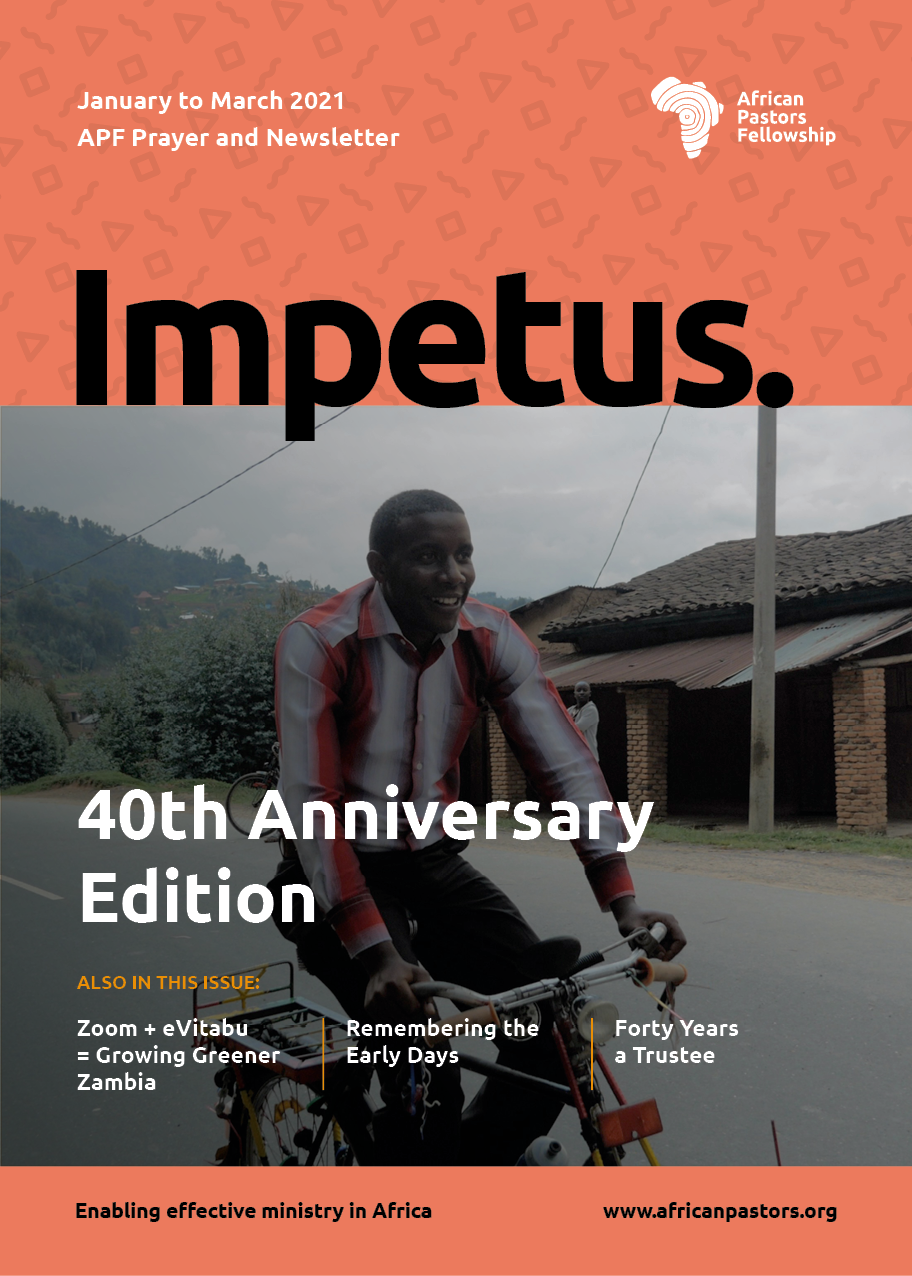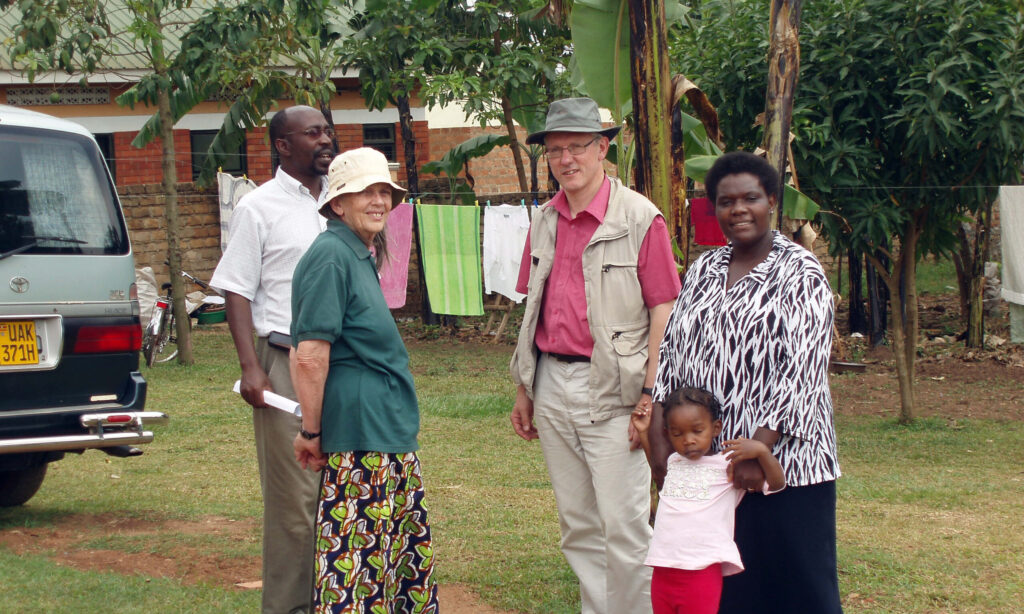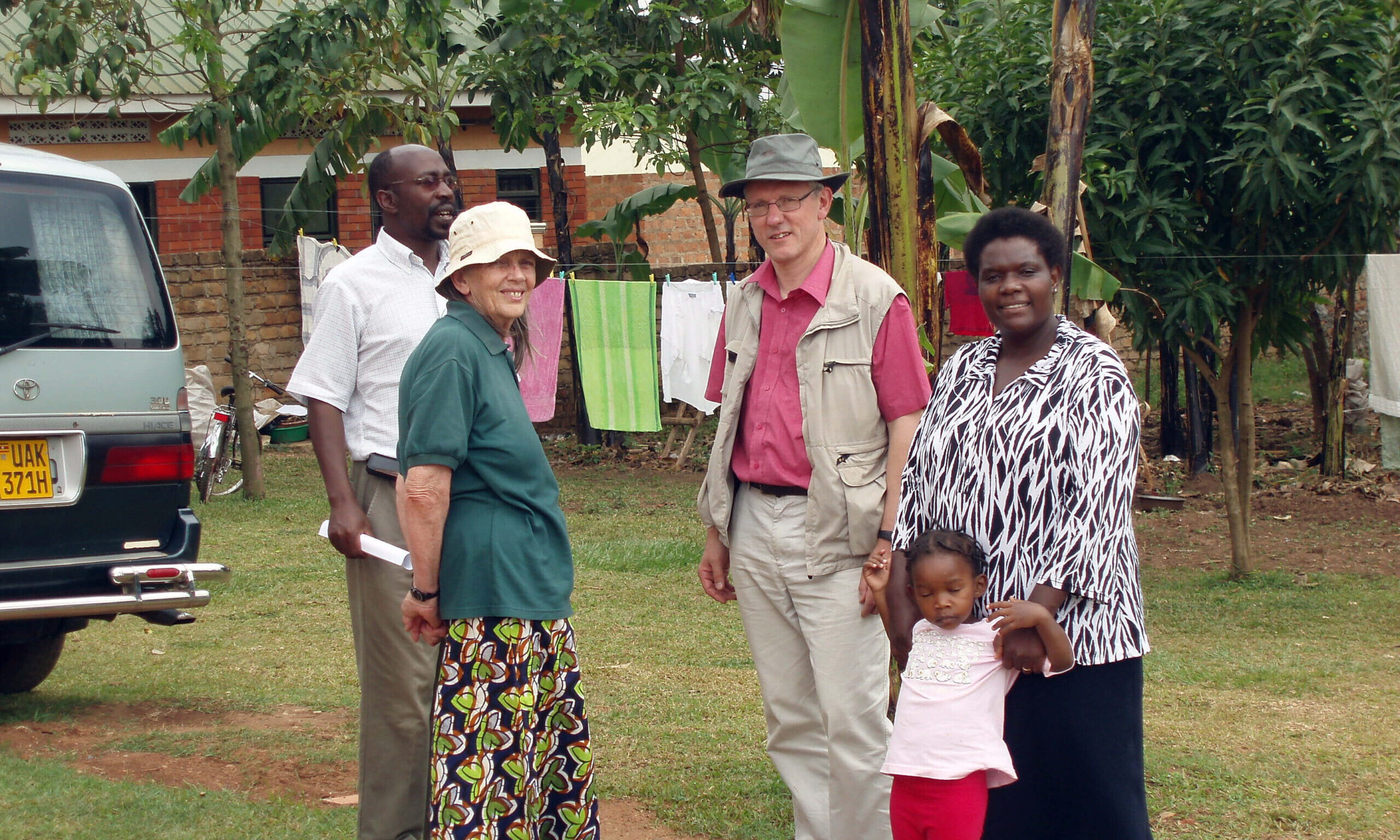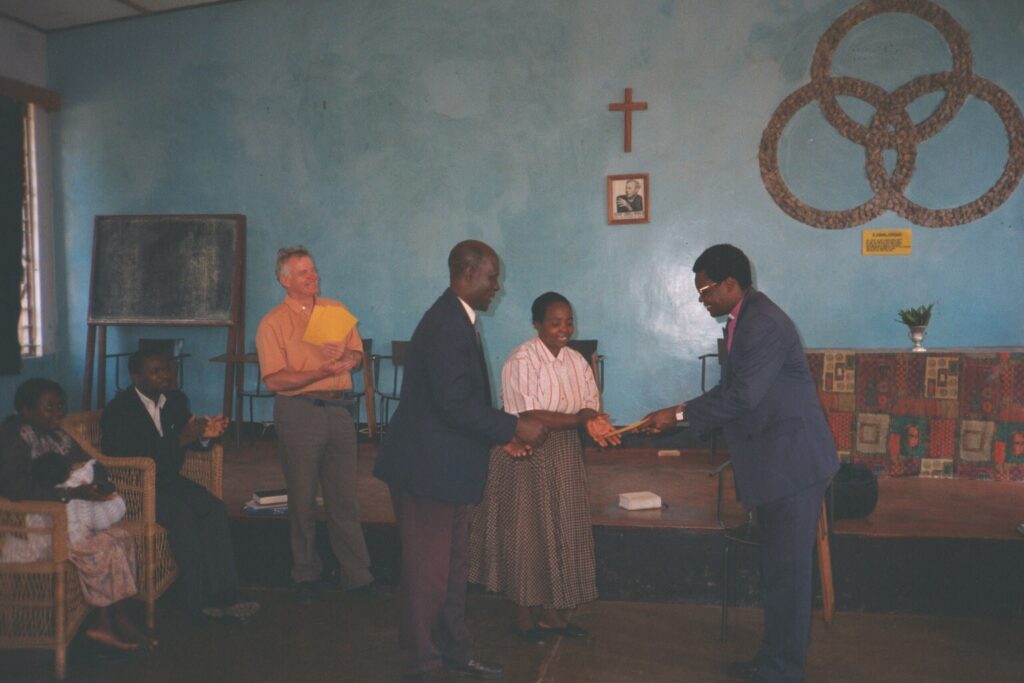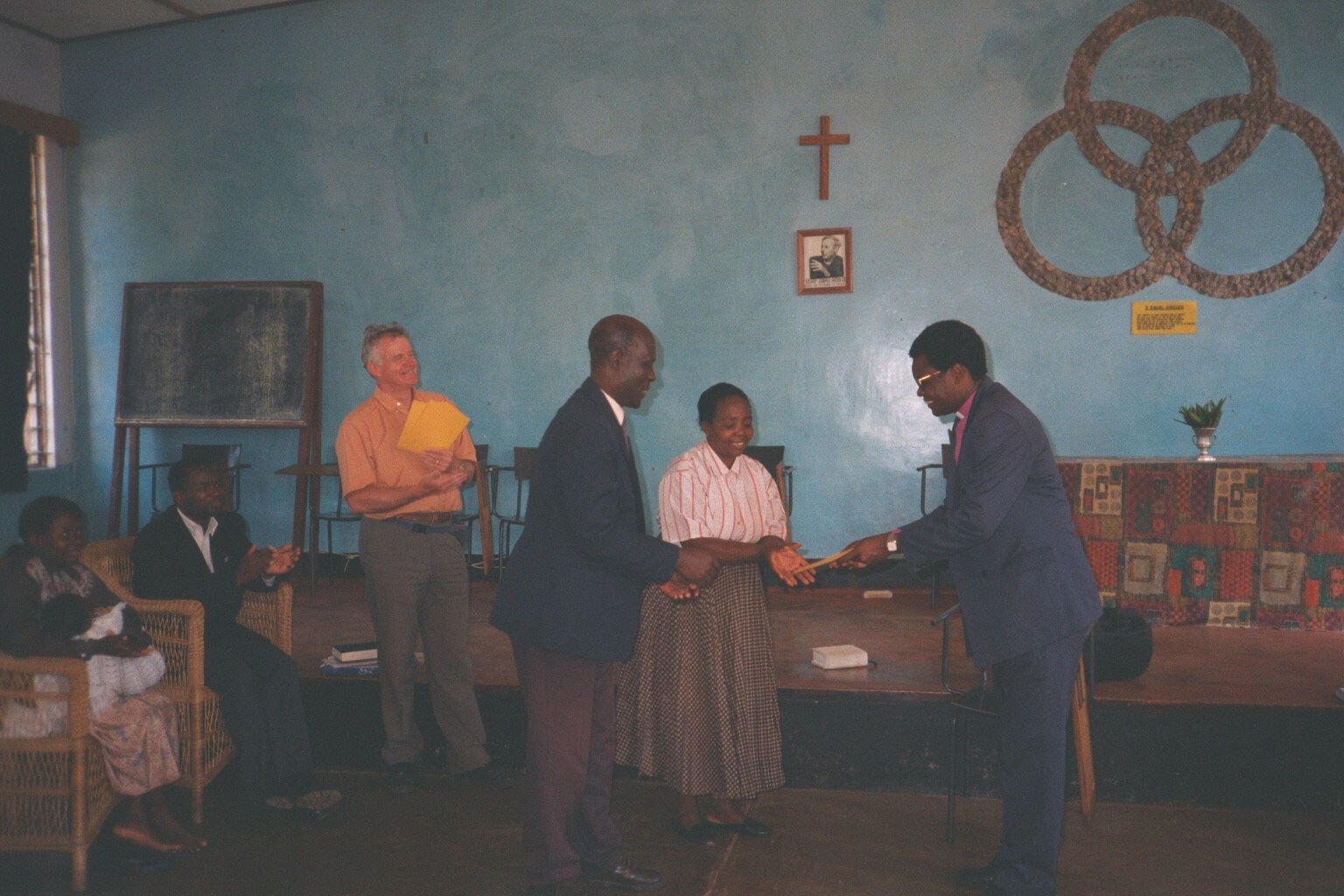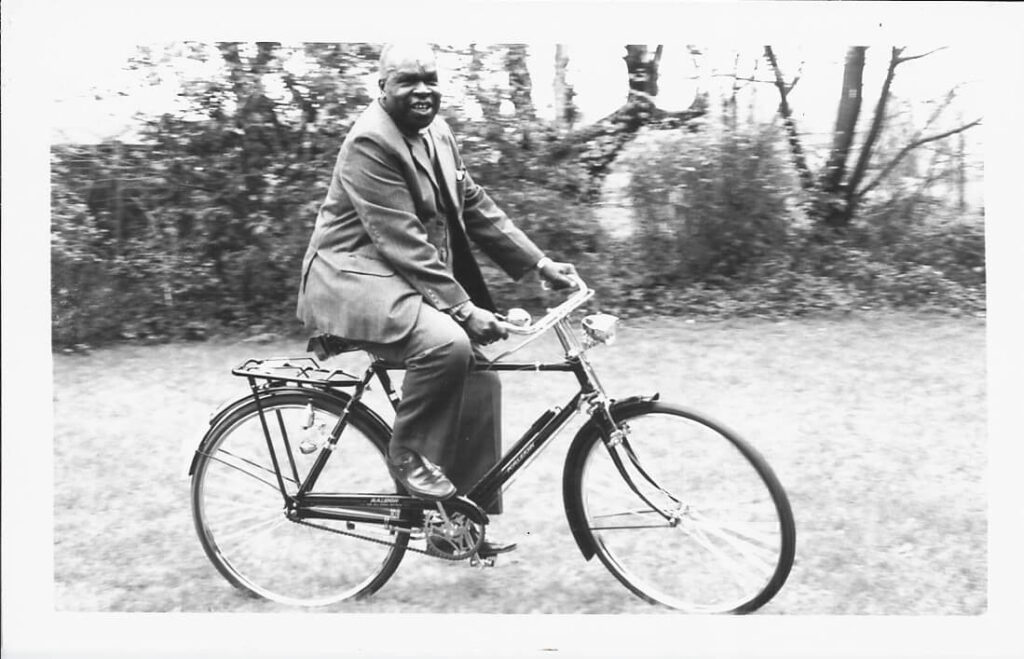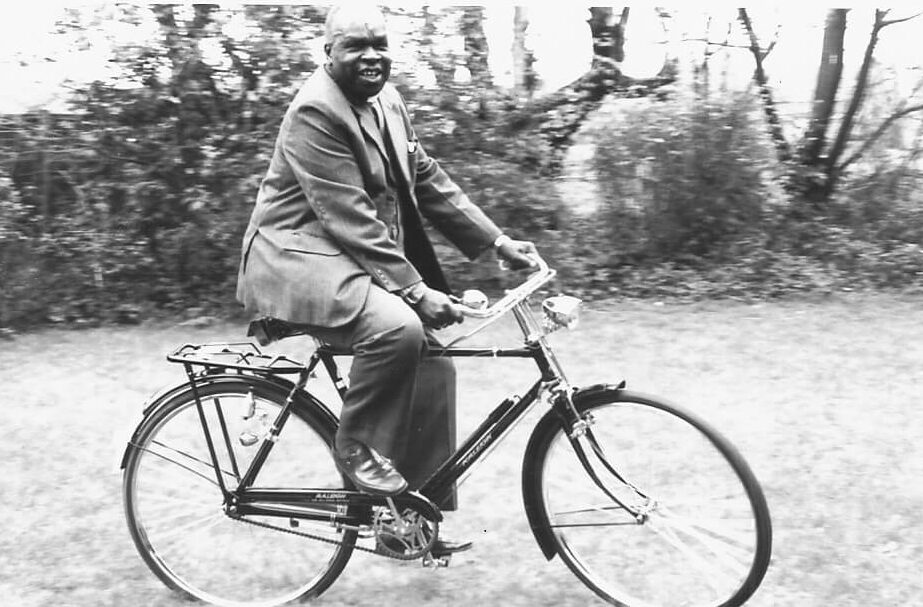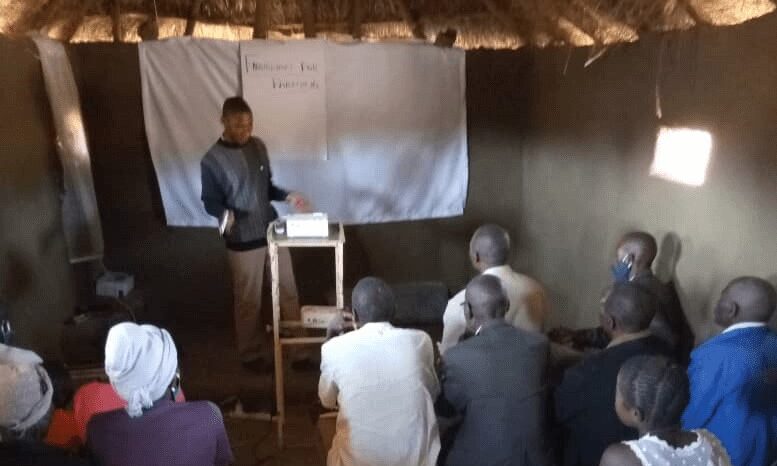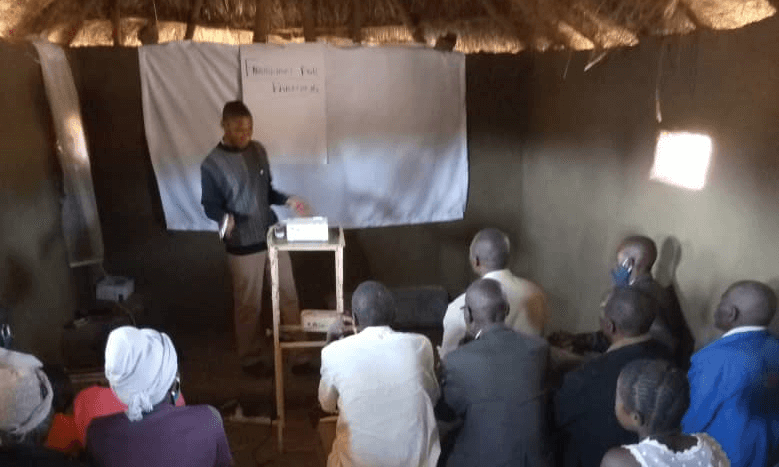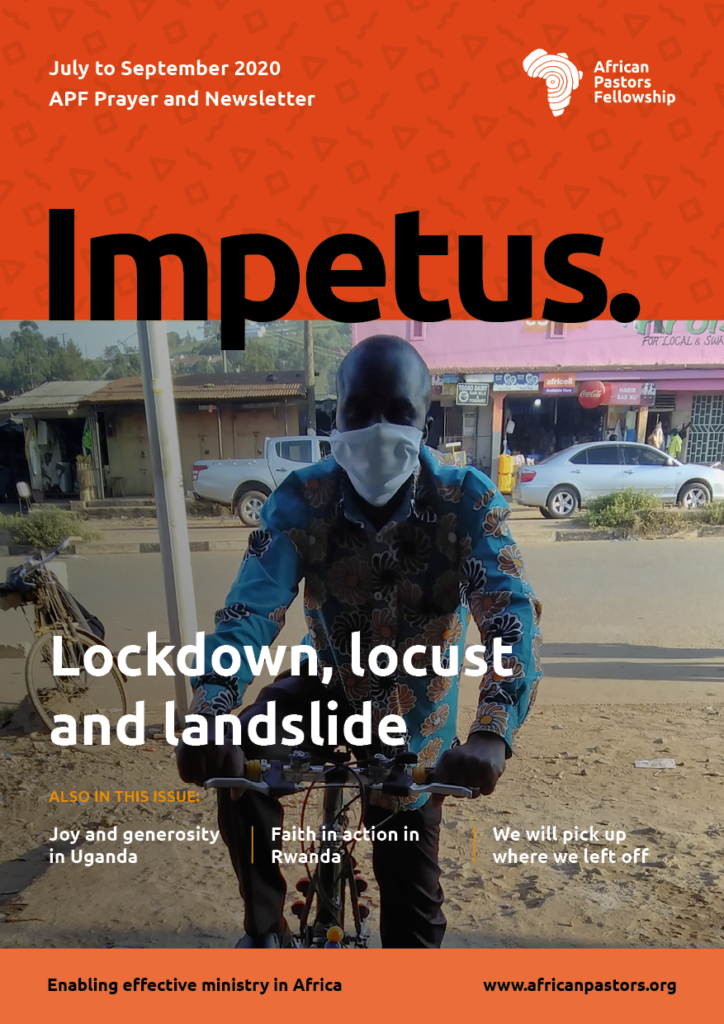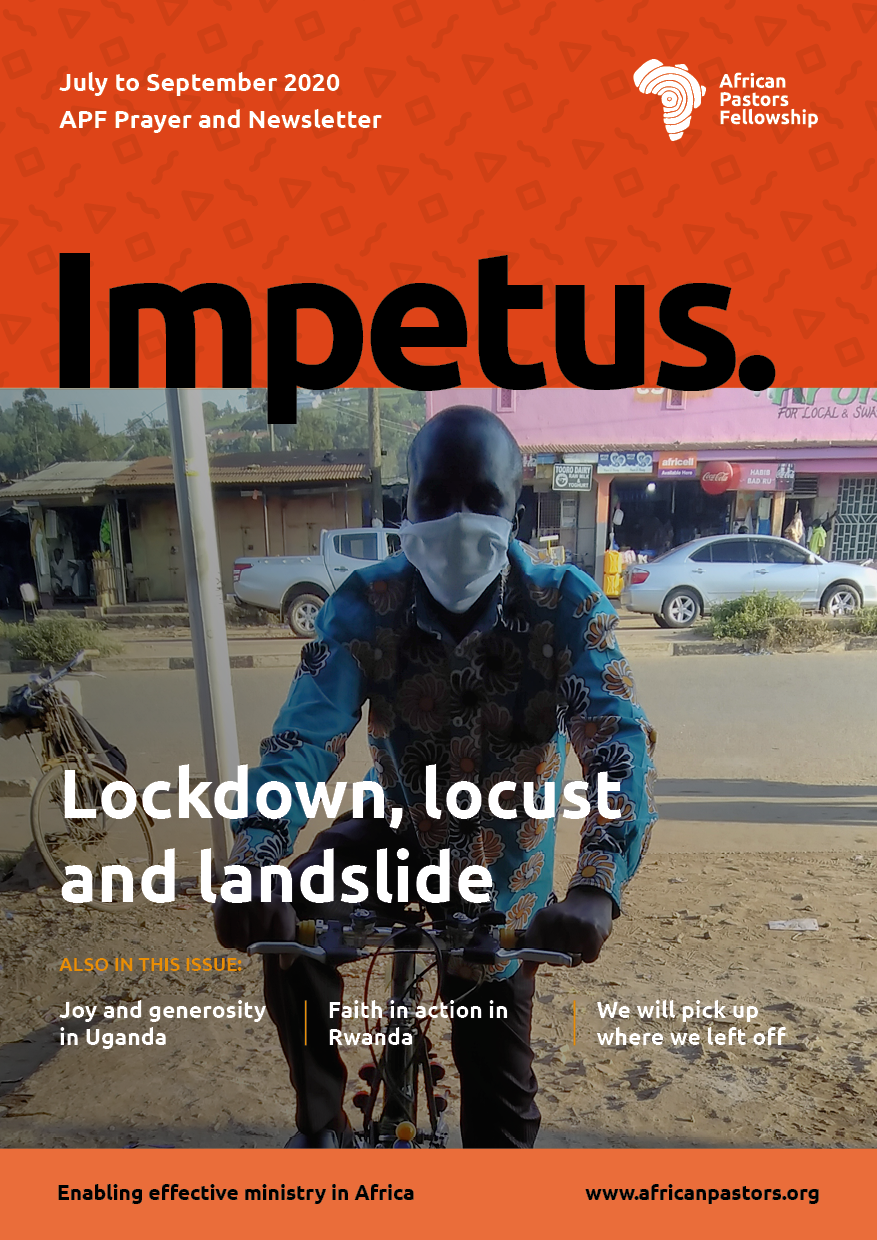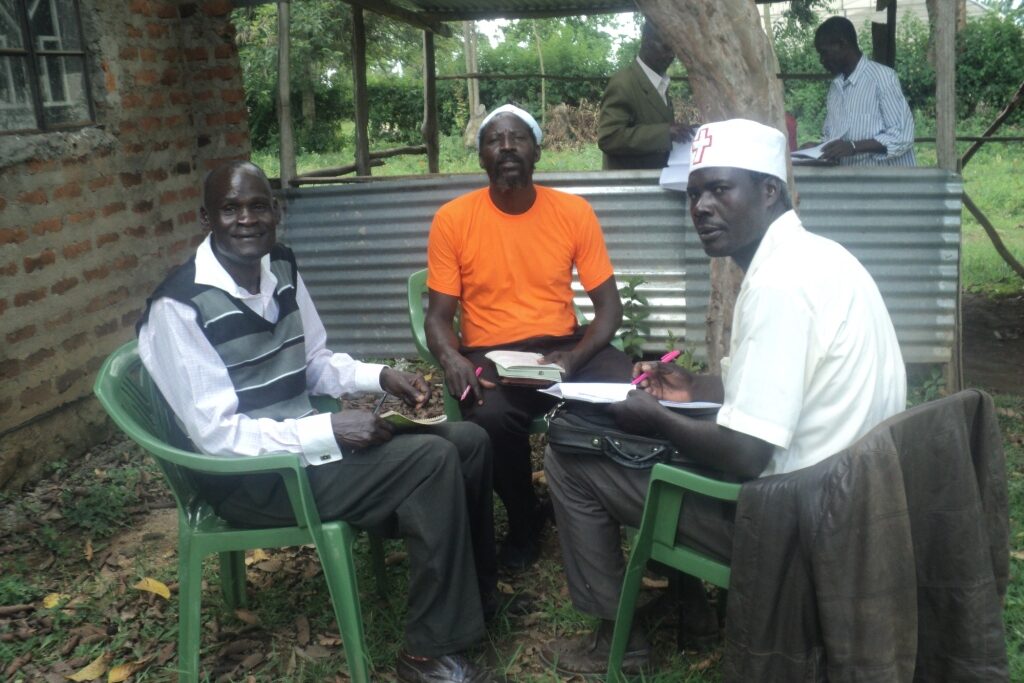
Daniel Odour Gwara coordinates Renewal Ministries, an ecumenical network of Christian leaders from across western Kenya. Equipped with eVitabu and an annual APF training grant, Daniel holds church leader teaching workshops for pastors and lay leaders from across the region. He updates us on progress.

Since the beginning of the year, I have been trying to reach key leaders of training hubs in West Kenya. Together, we have been organising training for this year.
At this time, the big challenge we all face is the Covid-19 pandemic. Covid-19 is making people fear for death. It has made people think about life and death and many are now coming to ask about Jesus. When leaders gather for training, we have done our best to make sure we have water for washing hands and other things we need to stay safe.
A great tool that I use when I train church leaders is eVitabu. One of the resources I have been using on eVitabu is a video message from Revd Dr Kate Coleman about David and Goliath. If we have a big screen connection, we show this video on a projector.
Another set of resources on eVitabu that have really inspired people at the training hubs are from Foundations for Farming. This training teaches more sustainable ways of doing agriculture and running on-farm businesses, all starting with God’s word.
With APF’s support, we are running training across fifteen centres in western Kenya and reaching hundreds of pastors and church leaders. They really want to learn as many lack even basic pastoral and theological training. We have also been holding fellowships for about 100 women in Kisumu city. Most of them are lay leaders and women pastors.
We trust God that soon we will be holding a vision casting. This will be for those who have not yet heard of eVitabu. We’ll be helping them find the app on their own smartphones so they can also download it and benefit from the training resources on it themselves.
Please join us in praying for more opportunities and openness to the word of God here in western Kenya.
Please pray
Give thanks for Daniel as he travels to meet, encourage and train Christian leaders serving in rural communities throughout western Kenya.
Give thanks for the pastors and leaders who gather for training. Pray they would benefit richly from what is being shared.
Pray that more funding will be found to support APF Regional Trainers like Daniel.
Pray for other leaders who receive APF Regional Trainer grants including Pastor Heavenlight Luoga (Tanzania), Revd Peter Mugabi (Uganda), Revd Francis Esomu (Uganda) and Revd Charles Munyamahoro (Rwanda).

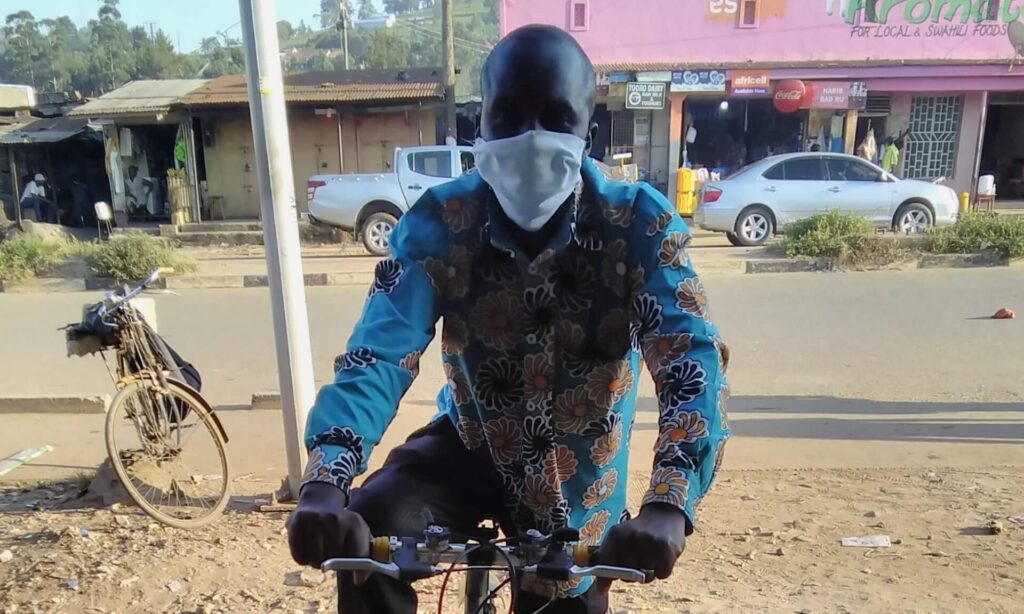
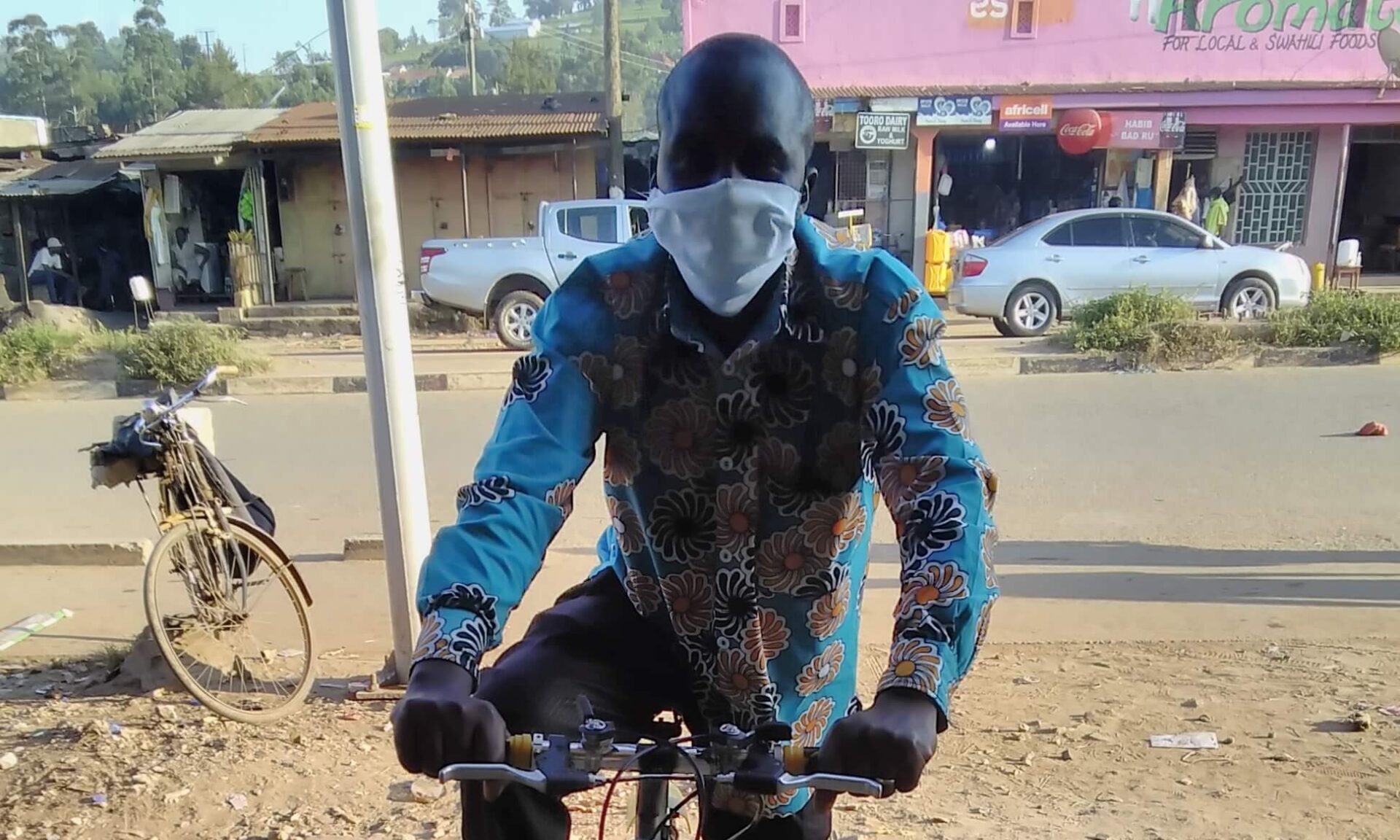
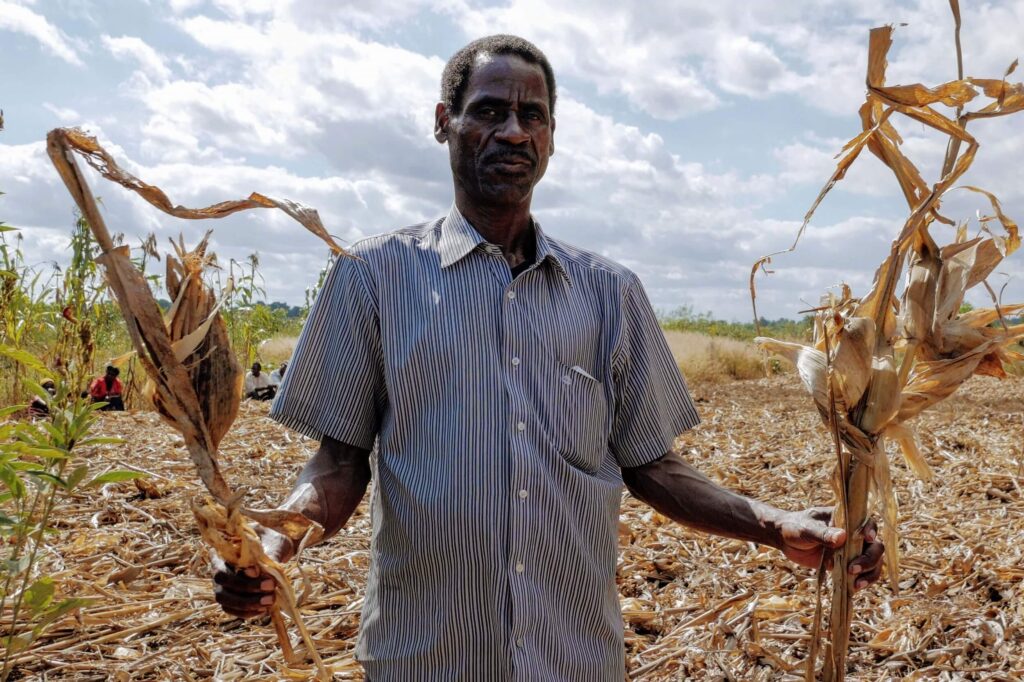
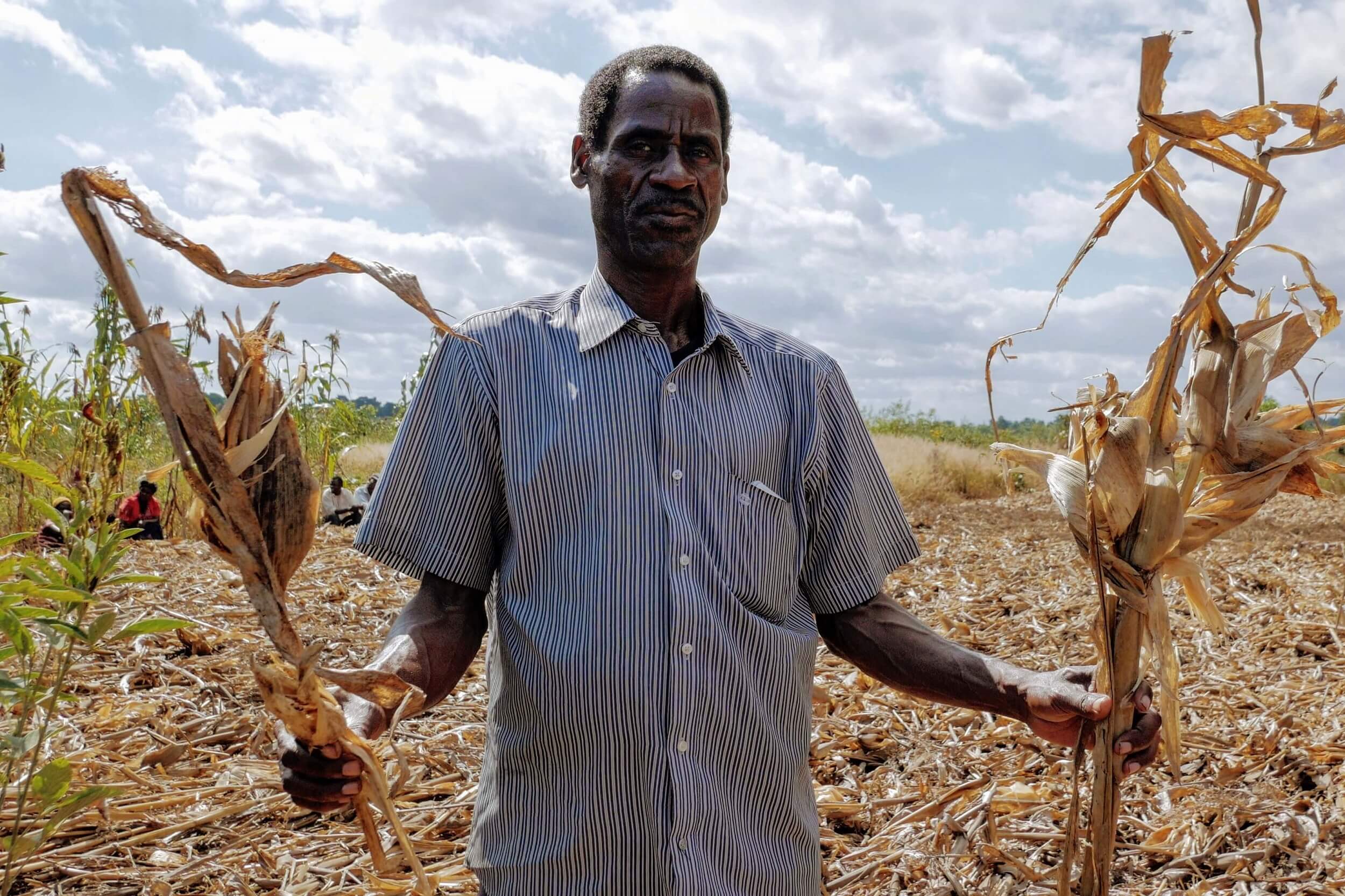
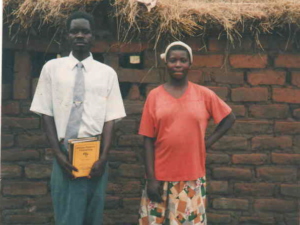 Lloyd with a pastor’s wife at an APF training event in the early 2000s.
Lloyd with a pastor’s wife at an APF training event in the early 2000s.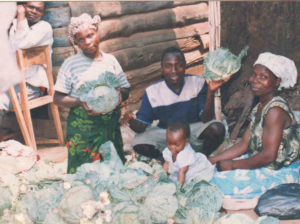 Household income generation schemes
Household income generation schemes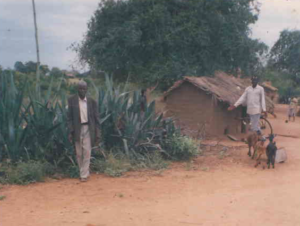 Milk, meat and young. Rural households
Milk, meat and young. Rural households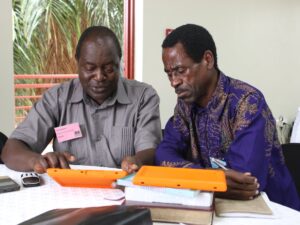 Revd Paul Kylimpa (l) from Uganda and Lloyd (r) checking out some of the farming resources on eVitabu during the app’s launch event held in Kampala during 2018.
Revd Paul Kylimpa (l) from Uganda and Lloyd (r) checking out some of the farming resources on eVitabu during the app’s launch event held in Kampala during 2018.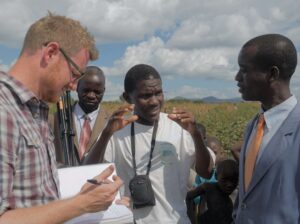 Geoff Holder speaking with farmers participating in Growing Greener, 2017.
Geoff Holder speaking with farmers participating in Growing Greener, 2017.